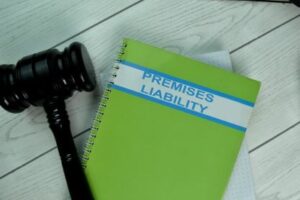Should I File A Florida Premises Liability Claim?

When someone has an accident in their own home, very often they only have themselves to blame. However, if you are injured on someone else’s property, you may be able to file a claim against them for the harm you have suffered. Property or business owners have a duty to exercise a certain level of care for their visitors, and if they failed to do so, you may be able to recover damages for what you have been through. Consulting a knowledgeable attorney on the subject can make all the difference.
Divided Into Three Categories
In premises liability law, the level of care that a landowner or business owner owes to a visitor will depend on that visitor’s reason for being there. This differs substantially from a case brought under a theory of ordinary negligence, wherein everyone on certain premises is owed the same base duty of care, regardless of why the person might be present. Florida premises liability law recognizes three types of visitors, some of which can be subdivided even further.
- Invitees are people who are, as one might imagine, invited onto the land. State law recognizes two subdivisions of that class – a business invitee is permitted on the premises for business purposes, like a customer in a grocery store, while a public invitee visits land as a member of the public, for the purposes for which the premises are open to the public (an example of this would be a museum customer in a public museum).
- Licensees are visitors who are there for their own purposes, but are not unwelcome. The classic example of this is a person who visits a gas station not for gas, but to get change. Note that invitees may become licensees if their intentions change while on the property.
- Trespassers, the third category, are fairly self-explanatory.
Each type of visitor is entitled to a different standard of care – whatever is seen as “reasonable” under the circumstances. For example, an invitee is owed a high enough standard of care for the property owner to try and make the land as safe as possible, and to warn about dangers that they cannot correct. A trespasser, by comparison, is only owed a duty for the landlord to refrain from intentionally injuring them.
“Actual Or Constructive Knowledge”
In most premises liability-related cases, the issues will often boil down to whether the owner took proper care or not. The alleged victim may be found to have contributed to their own injuries, but this is not a bar to recovery in Florida. In order to prevail, an injured plaintiff must show that the property owner or landowner failed to exercise due care, and that that failure was the direct cause of the plaintiff’s injuries.
In some cases – particularly those that happen inside a business – there may be additional evidence required before a plaintiff can prevail. Florida’s legislature has a specific law that states that if a person slips and falls on a “transitory foreign substance” on the premises of a business, they must prove that the business had “actual or constructive knowledge” of the substance, and should have taken action to fix it. In other words, an injured plaintiff must show that the business knew (or should have known) of the potential danger, and should have fixed it, in order to be able to recover. This is a tall order, but not impossible, particularly not if a good attorney is on your side.
Contact An Orlando Premises Liability Attorney
Premises liability cases can be difficult to establish, particularly if you were injured inside a business. However, it is very far from impossible to prevail. An Orlando slip and fall attorney from the Hornsby Law Group can help to answer your questions and manage your concerns about bringing suit. Call our offices today at (407) 499-8887 for a free consultation.
Source:
leg.state.fl.us/Statutes/index.cfm?App_mode=Display_Statute&URL=0700-0799/0768/Sections/0768.0755.html